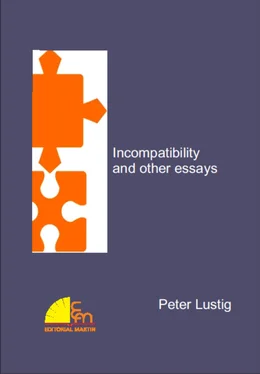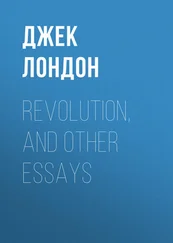That was when the Enlightenment stepped in, laying the ground for “reason” to explode into protest and revolution, in response to the ever larger number of outcasts, in a system marred by social irreponsibility, in which the only stabilizing factor was a fairly high death rate. But more unforgivable than the Revolution of 1789 -the first concerted genocide involving the elimination of an entire class-, was the fact that the ideals of this overturning of the social order were to spread throughout the rest of Europe and Spanish America in the following century, to give shape to new national identities on both sides of the Atlantic. Britain was spared the ordeal of upheaval from below, because it was able to resort to colonial expansion, for which the uncompromising elements of the underclass were selected for transportation overseas (where, in turn, they were afforded the chance to make their way and to lord it over the “natives”). But the seed sown, not least in London, by Marx, certainly gravitated all over Europe, until it burst forth in the catastrophe of 1914, wrongly attributed to the more immediate cause of imperialist expansion (with the intention of forestalling revolution), as was made plain by the course of events, in Russia, after October 1917.
At the end of World War I, it was first suspected that all could not be right with the rationale and the methods with which it was being attempted to keep society in some sort of order. Socialism and the concept of the new man was supposed to remove the bite from Hobbes’ cannibalistic metaphor for man. Totalitarianism, the result of single party regimes, proved that this was not going to happen. It took the atomic bomb for everybody to finally understand that nothing could be solved by waging war and that the time had come to find new ways to address large scale collective conflict. Have any new ideas been put forward, other than those that seem not to work all that well and which have given rise to impatience and frustration? There are still unresolved issues that suggest that it has not been understood that reliance on custom and tradition, at variance with the present condition of society, would prove as inappropriate as trying to turn the clock back, in an appeal for a second chance, something that can only happen in theory; never in the real world.
If anyone were seriously interested in trying to re-define modern society, globally, statements would have to be made in sociological, or anthropological terms, rather than in accordance with political expediency. For instance, the viability of dual or multiple nationalities would have to be balanced against the concept of loyalty to one particular country. Or perhaps it might be concluded that there is no real reason to make such a choice, seeing that whatever a person might think or feel, he is still entitled to some elementary common rights as a human being and he would have no need for the protection of a limited political entity.
In wartime, a distinction is often made between combatants and “innocent” civilians. How “innocent” can anyone caught in the midst of shooting and bombardment be? Would it not be more appropriate to regard everybody as being only marginally involved with whatever was at issue, and not least the draftees? More aptly, if a country has started on the warpath under the guidance of a popularly endorsed leader, who can say he was innocent, if he knew very well what he was voting for? Was not that what infuriated Churchill and Harris so badly against the German civilian population, to want to raze whole cities that were of no strategic importance? Might Hiroshima and Nagasaki be attributed to a different spirit?
To use “human nature” as an excuse, in these circumstances, will not get very far with skeptics and even less with people who never sympathized with the allied cause, on historical grounds, out of rivalry and resentment against Anglo Saxon dominance. And certainly not because they were inclined to be at all open-minded. Is there any chance that channels of communication might be devised from such strategic dispositions? It seems more than doubtful, considering the contradictions inherent to divided loyalties and ideological discrepancies, that a way could be found to reconcile differences, unless some external factor were brought in to pose a more far-reaching threat. The atom bomb may have been just that. Would anyone want to suggest that terrorism, particularly Muslim terrorism, is anywhere close to becoming such a menace, in spite of the growing number of volunteers who are reportedly ready to lay down their lives for the cause, if it is known that their weaponry consists mainly of equipment recently left behind by the U.S. forces, upon withdrawing from the Middle East?
Harassment by wanton suicide terrorism has undoubtedly an undermining effect on democracy. It may be understood as a debilitating factor of universal suffrage. Why should people who resort to violence to get what they want be treated equally with law- abiding, peaceable denizens? But, if all citizens were not entitled to receive equal treatment, would it not seem as if some were being favoured over others and there was no outright recognition that, when it comes to the vote, each man counts as much as the next? So, while some would consider that they have a right to rise up and use force against a system that is weighted against them, as a class - pursuing the line of thought put forward by the rabble that responded to Robespierre, at the time of the Terror-, any form of political compromise, or consensus, would prove unattainable; because those people were out for blood!
Let it be taken into account that the names of the institutions and the language used by “patriots” engaged in the wars of independence against the Spanish monarchy were faithful encores of those first implemented in France. In Spanish America (in Argentina, but also throughout the rest of South and Central America, including Mexico), children have been taught, for the last two hundred years (since Napoleon invaded Spain and imprisoned Ferdinand VII), that their “freedom” and their independent national identity were achieved thanks to violent upheaval, as practised, in word and deed, by those “liberating” forces, headed by the revered patriarchs and founding fathers of each new nationality.
If killing “royalists” (not Spaniards, since “patriots” were of similar stock) was the right thing to do, how can people be persuaded to have regard for a hierarchy, while blood-letting becomes tantamount to glorying in a sense of identity? Given the incitement to violence, can any kind of socialization ensue, in which differences are likely to be discussed, or perhaps debated, but not necessarily fought out?
Similarly, the moderate Muslims are subjected to propaganda and intimidation, until they turn into fanatics. They do not do this for money alone (although many may have in mind sacrificing for the sake of their families, as they will be significantly rewarded for having a martyr to show). It gives a reason to their lives, often just poor lives without any prospects; but, also, a transfiguration inspired by faith exalts their sense of being part of a collective identity that would otherwise be restricted to wishful thinking. It is like the instant gratification of an ego trip; just the thrill for no reason!
Assuming that political modernization can be traced to Cromwell’s Protectorate, set up for the preservation of the state threatened by factional strife, was his not an attempt to inflict authoritarian rule, even at the cost of civil war? To what extent was democracy being validated, if the conditions under which he ruled were to lead to the restoration of the monarchy? At least, that is how Cromwell’s dictatorship has been envisioned historically.
Another instance of a slanted view of historical events refers to the enduring image of the French Revolution that has come down to us. Nobody recalls the role played by the Girondins. Even less are the more extreme and querulous factions of the left remembered. What comes to mind is the Terror and the names of Robespierre, Danton and Marat, none of whom were anything but high-minded, well educated idealists; certainly not the embodiment of murderous insanity. And yet, this is how they have been objectively portrayed, given the overall picture of that period in history.
Читать дальше












